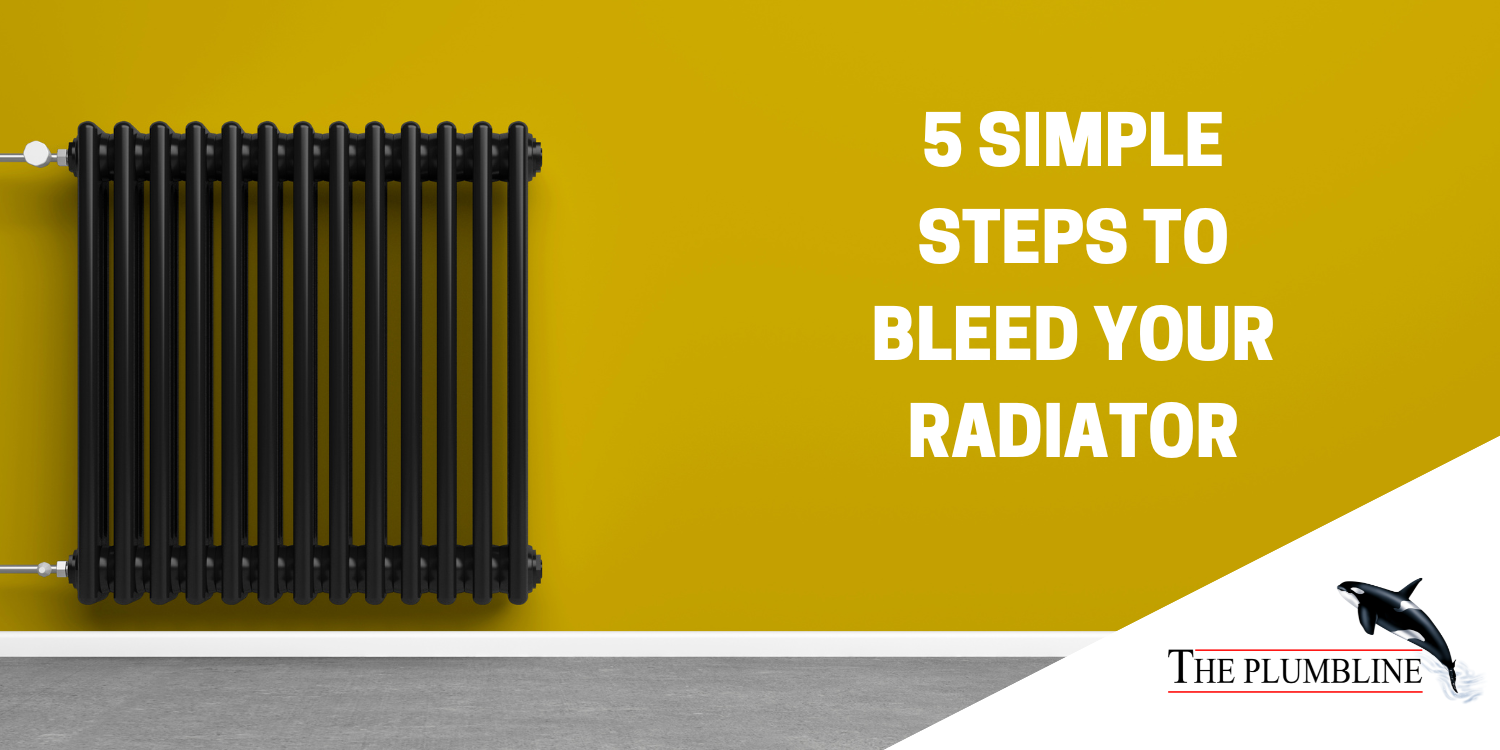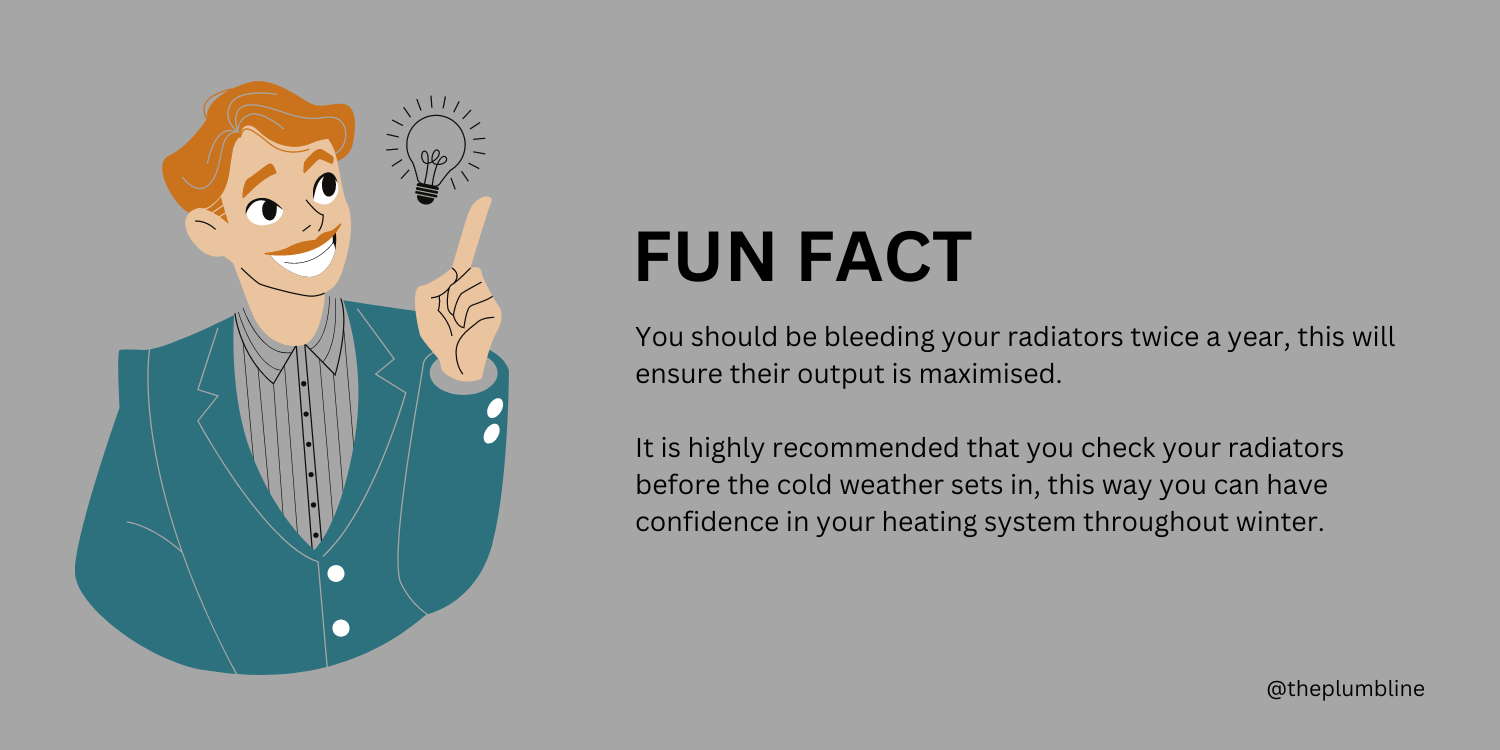Occasionally, you will need to bleed a radiator when it isn’t performing as well as it used to. This may be due to trapped air; you can usually hear loud noises from your radiator if this is the case. By bleeding your radiators, you are ultimately saving money on your bills.
Another reason may be that you have noticed the development of mould or dampness within your property, this is a critical factor in checking your radiators and giving them some attention.

Items you will need to complete bleeding your radiator:
- Something to catch water e.g., bucket, mug,
- Radiator Key
- Safety Gloves
- Cloth or old rag
TURN OFF YOUR HEATING
Before you start the process of bleeding, you must ensure that you have turned your heating off. This is vital for your safety because you cannot bleed a radiator when it is on, the radiator may be too hot to touch, or hot water could potentially spray on you. Due to the risk of burning yourself, leave the radiators to cool fully before completing any work.
LOCATE YOUR BLEED VALVE
Every type of radiator has a bleed valve; this is usually located in the corner of the top of your radiator and looks like a dip with a valve inside it. Pop on your safety gloves in preparation for the next step and arrange your bucket or cloth in the correct position.
RELEASE THE AIR
Use your radiator key to slot into your valve and in the top corner of your radiator, start turning in a slow anticlockwise motion. The more you turn, you should begin to hear a hissing sound, which means the air is being released, and any trapped air is leaving the radiator. Ensure to have your bucket or cloth ready to catch any leaking water. Once the hissing has stopped, you can retighten the valve using the radiator key in a clockwise motion. The quicker you do this, the quicker the water will stop escaping.
SWITCH THE HEATING BACK ON
Once you have completed the bleeding process and have to clean up any water that has escaped, turn your heating back on. You should make sure to check the pressure of your boiler by watching the gauge, this is the due potential effect of pressure after bleeding your radiators. You should look out for signs of low pressure; you must top it up using the level or tap on your boiler if it is too low.
CHECK YOUR RADIATORS
Once the heating kicks in, go and check whether your radiators are heating up efficiently. The main aspect you are looking for is evenly filled and heated radiators. If this is the case, you have been successful. If nothing has changed, you should consider getting a professional to come and have a look as the issue may be a bigger one.

GET IN TOUCH
If you have any questions about how to bleed a radiator or any plumbing issue for that matter, you can ask for advice from one of our experts on 01938557733, you can also ask about accessories we sell to support you when carrying out plumbing issues. Our team is always on hand to help and will happily provide you with the information you need to be able to make an informed decision.
Alternatively, visit one of our branches to speak to one of our team in-store. Use our Branch Locator to locate your nearest branch.
